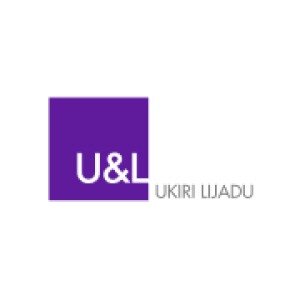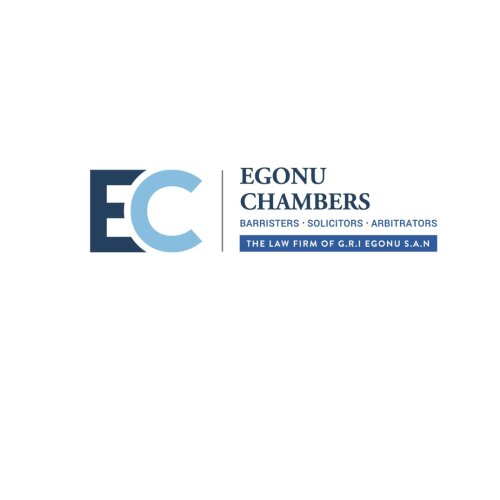Best Sanctions & Export Controls Lawyers in Maitama
Share your needs with us, get contacted by law firms.
Free. Takes 2 min.
List of the best lawyers in Maitama, Nigeria
About Sanctions & Export Controls Law in Maitama, Nigeria
Sanctions and export controls are legal mechanisms that regulate the movement of goods, services, technology, and finance between countries and entities. In Maitama, Nigeria, which is a major hub in Abuja, these laws are particularly important due to the area’s concentration of foreign embassies, government offices, and international businesses. Nigerian sanctions and export control laws are designed to comply with international obligations, prevent illegal activities such as money laundering or terrorism financing, and support both national and international security. These laws set out the rules on importing and exporting certain goods, and restrict dealings with entities or individuals subject to sanctions.
Why You May Need a Lawyer
Legal expertise in sanctions and export controls is essential due to the complexity and high stakes involved. You may need a lawyer if your business imports or exports goods, provides services to foreign entities, deals with dual-use items, or if you are unsure whether your activities comply with relevant Nigerian and international sanctions. Lawyers also help individuals and companies avoid severe penalties for inadvertent violations, assist in navigating changing laws, and represent clients facing investigations. Whether you are expanding your business internationally, facing queries from regulators, or receiving foreign investment, a lawyer can provide safeguard strategies and compliance advice tailored to your needs.
Local Laws Overview
In Maitama, Nigeria, sanctions and export controls are governed by a combination of domestic legislation and Nigeria’s international commitments. Key laws include the Nigerian Export Prohibition Act, Customs and Excise Management Act, and the Money Laundering (Prohibition) Act. The Central Bank of Nigeria and the Nigerian Customs Service are key enforcement agencies. These laws restrict or control the trade and movement of goods such as arms, strategic items, and products deemed sensitive under international sanctions (including United Nations and African Union mandates). They also prohibit transactions with sanctioned individuals, entities, or countries, and require due diligence and compliance from businesses and financial institutions operating within Maitama.
Frequently Asked Questions
What are export controls?
Export controls are regulations that govern how certain goods, technologies, and services can be sent from Nigeria to other countries. They are designed to prevent the proliferation of weapons, maintain national security, and fulfill Nigeria’s international obligations.
Who enforces sanctions and export controls in Maitama, Nigeria?
The main enforcement bodies are the Nigerian Customs Service, Central Bank of Nigeria, and relevant ministries such as the Federal Ministry of Industry, Trade, and Investment. International partners may also play a role in enforcement through cooperation agreements.
What are common items or services regulated by export controls?
Commonly regulated items include military goods, dual-use technologies, sensitive chemicals, financial services, and items that can be used for terrorism. Some goods, like certain agricultural products, may also be restricted based on trade deals or embargoes.
What penalties can arise from violations?
Violations can lead to significant financial penalties, imprisonment, confiscation of goods, revocation of business licenses, and reputational damage. Legal proceedings can also disrupt business operations.
Are there any exemptions to sanction rules?
Some exemptions exist for humanitarian goods and certain licenses can be obtained, but exemptions are not automatically granted. Each request is evaluated on a case-by-case basis by regulators.
Do international sanctions apply to businesses in Nigeria?
Yes, businesses operating in Nigeria must comply with both Nigerian and applicable international sanctions, especially when dealing with entities from countries subject to United Nations or African Union sanctions.
How can I check if a customer or partner is sanctioned?
The Central Bank of Nigeria and other authorities may publish sanction lists. It is wise to consult official lists and use compliance screening tools to ensure you are not engaging with sanctioned persons or entities.
Is a legal consultation necessary for small businesses?
Even small businesses can unknowingly violate sanctions or export controls. A legal consultation ensures you understand obligations and can prevent costly mistakes regardless of business size.
What should I do if contacted by enforcement agencies?
Seek immediate legal advice before responding or providing documents. A lawyer can help protect your interests, ensure your rights are upheld, and guide you through the regulatory process.
How often do these laws and regulations change?
Sanctions and export controls are subject to frequent updates in response to global developments or changes in domestic policy. Staying informed and maintaining a compliance program is vital.
Additional Resources
For more information and assistance, the following bodies and organizations can be useful:
- Nigerian Customs Service - Key authority on export licensing, customs declarations, and enforcement.
- Central Bank of Nigeria - Manages financial transaction compliance and provides sanction lists.
- Federal Ministry of Industry, Trade, and Investment - Issues export permits and guidance on trade controls.
- Nigerian Export Promotion Council - Provides legal guidance and resources for export businesses.
- The Economic and Financial Crimes Commission (EFCC) - Investigates and enforces financial aspects of sanctions law.
Next Steps
If you need legal assistance with sanctions and export controls in Maitama, Nigeria, start by organizing your documentation regarding all relevant trade transactions, contracts, and communications. Book a consultation with a lawyer who specializes in international trade, compliance, or sanctions law. During your consultation, clearly outline your activities and question areas. Remain proactive in seeking updates on evolving laws and consider establishing an in-house compliance process. Engaging a knowledgeable lawyer can help you navigate complex regulations and protect your business or personal interests from legal pitfalls.
Lawzana helps you find the best lawyers and law firms in Maitama through a curated and pre-screened list of qualified legal professionals. Our platform offers rankings and detailed profiles of attorneys and law firms, allowing you to compare based on practice areas, including Sanctions & Export Controls, experience, and client feedback.
Each profile includes a description of the firm's areas of practice, client reviews, team members and partners, year of establishment, spoken languages, office locations, contact information, social media presence, and any published articles or resources. Most firms on our platform speak English and are experienced in both local and international legal matters.
Get a quote from top-rated law firms in Maitama, Nigeria — quickly, securely, and without unnecessary hassle.
Disclaimer:
The information provided on this page is for general informational purposes only and does not constitute legal advice. While we strive to ensure the accuracy and relevance of the content, legal information may change over time, and interpretations of the law can vary. You should always consult with a qualified legal professional for advice specific to your situation.
We disclaim all liability for actions taken or not taken based on the content of this page. If you believe any information is incorrect or outdated, please contact us, and we will review and update it where appropriate.









